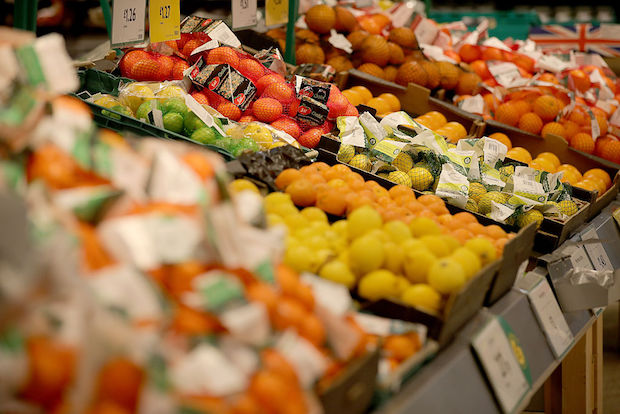There seem to be quite a few bogeymen doing the rounds at the moment, but plastic is one of them. As Ross Clark wrote in last week’s Spectator cover feature, it’s the fashionable issue among environmental types at the moment – which is why the government has chosen to focus on it.
There are of course pros and cons to plastic – including the debate as to whether the alternatives to plastic are even worse than plastic itself. But it’s hard to argue against the observation that one of the biggest sources of what you might call ‘unnecessary’ plastics is food shopping. Cucumbers tend to be wrapped in plastic, as are your sausages from the butcher’s counter, and your loaf of bread; even dry food stuffs such as pasta. (Incidentally, there’s an amusing, but equally quite shocking, article by Damian Whitworth in The Times about his family’s attempt to avoid plastic in their weekly food shop, which is worth a read here).
I’d hazard a guess that most people don’t actively want their fruit, veg and pasta wrapped in plastic. But wrapping veg in plastic is more convenient, both for the supermarkets and for the consumer. What you might not have thought about, though, is the cost factor. Surely it must cost companies more to shrink-wrap your green beans rather than selling them individually? But a recent investigation by MoneySavingExpert.com showed that in many cases, buying vegetables pre-packaged was cheaper than buying them loose. In some cases – for example with Royal Gala apples at Morrisons – it was 41% cheaper to buy a pack of six apples (at £1.50) than 6 loose ones (for £2.55).
That wasn’t the case with all products (broccoli and bananas tended, on the whole, to be cheaper loose), and it did depend which supermarket you shopped at. In Waitrose, all the fresh products checked in the investigation were cheaper loose than packaged. But at Asda, Lidl, Morrisons, Sainsbury’s and Tesco, at least half of the foodstuffs checked were cheaper wrapped in plastic than they were loose.
If you’re adamant about not buying plastic-wrapped produce then you could always try a greengrocers where prices are normally competitive, and fruit and veg tends not to be sold pre-packed. Of course, the next problem is that you don’t know what it was wrapped in when it arrived at the shop…
Will the current campaign to use less plastic be beneficial in the long-term? Whatever the answer is, I’d still be keen to know how supermarkets can justify charging their customers for what is, essentially, the privilege of not using plastic packaging.







Comments